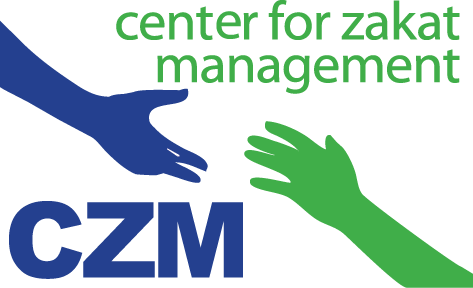Business Zakat
BUSINESS ZAKAT IS OBLIGATORY
- Evidence of Business Zakat According to Islam
- Conditions Governing Business Zakat
- Assessment Method
- Business Zakat and Corporate Tax
1. Evidence of Business Zakat According to Islam
Allah S.W.T. Says:
"O you who believe! Spend of the good things which you have (legally) earned, and of that which we have produced from the earth for you, and do not aim at that which is bad to spend from it, (though) you would not accept it save if you close your eyes and tolerate therein. And know that Allah is Rich (Free of all wants), and Worthy of all praise."
Al-Baqarah: 267
"And perform AsSalat (Iqamat-a s-Salat), and give Zakat and obey the Messenger (Muhammad S.A.W) that you may receive mercy (from Allah)."
An-Nur: 56
The ulamas have agreed unanimously that Zakat is compulsory on business assets.
Allah S.W.T. Says:"Men whom neither trade nor sale divert them from the Remembrance of Allah (with heart and tongue), nor from performing AsSalat (Iqamat-a s-Salat), nor from giving the Zakat. They fear a Day when hearts and eyes will be overturned (from the horror of the torment of the Day of Resurrection)."
An-Nur: 37
Abu Daud and Daraqutni reports from Samurah bin Jundub that the Prophet (PBUH) used to order us to pay Zakat out of what we have for sale.
Maimun ibn Mihran explains: When the period for you to pay Zakat has arrived (i.e. haul is fulfilled), count the amount of cash that you have, and for business goods that you have, valuate it with your currency, and all debt by your customers that you are confident will be paid back to you must be taken into account, and then deduct from that your own debt, and pay Zakat over the balance that you have.
2. Conditions Governing Business Zakat
MUSLIM
All business entities owned by Muslims are obligated to pay Zakat upon it. Businesses with mixed ownership (i.e. 80% equity ownership of Muslims), only the part owned by Muslims is obligated to be paid upon it.ASSETS OR SERVICES THAT ARE HALAL (PERMISSIBLE BY SARIAH)
Business assets must be from Halal sources and the business activities too must come from Halal activities or services. All business properties that are Haram either from physical aspect side (‘ain) or from activities that are Haram such as usury are excluded in the calculation of Zakat.NISAB (MINIMUM AMOUNT)
The nisab of business assets is the equivalent of 85 grams of gold (20 mithqal). When the value of the business assets are the same or exceeds nisab then Zakat is imposed on the stated assets.HAUL (MINIMUM TIME PERIOD)
Value of the assets calculated from the start of business until the end is known as haul. The haul period is calculated from the date the business started. For example haul for business is the financial year ending June or December.PRODUCTIVE ASSETS
Assets eligible for Zakat must be assets that are productive and can be developed or has the potential to develop which means that it is able to generate income and profit.FULL OWNERSHIP
Owner has the right to manage his assets including selling, gifting it or letting out the said asset. Physical ownership (hiyazah) and absolute management ownership (tasarruf) must also exist simultaneously.THE SOURCE OF BUSINESS ASSETS MUST BE FROM BUYING OR EXCHANGING
Business assets must be obtained legally. Income from charity is also calculated as business assets and is subject to Zakat payment.INTENTIONS (NIAT) TO DO BUSINESS
Owner must have intention to do business (i.e. obtain profit) during ownership of trading goods (urud tijarah).BUSINESS ASSETS ARE NOT FOR PERSONAL USE
Assets acquired and owned to be used personally is not subject to business Zakat but is subject to other types of Zakat such as Zakat on earned income (for individual).
3. Assessment Method
Business Zakat calculation takes into account the business’s Current Asset position, deducted over several Current Asset and Current Liability items.
Zakat = (Current Asset + Adjustment in Current Assets + Adjustment in Current Liability) X Muslim Share Ownership X 2.5%
Although this method looks straight to the scope of Current Asset and Current Liability, indirectly, it also takes into account other scopes in business, for example, financing scope (equity and loan) and the scope of Fixed Assets used in the business. This is based on the following accounting equation:
Current Asset + Current Liability = Owners’ Equity + Long-term Liability – Fixed Asset - Non-Current Asset
The above equation is derived from the original equation which is:
Assets = Liabilities + Equity
ZAKAT RATE
2.5% on assets eligible for Zakat, subject to nisab.





